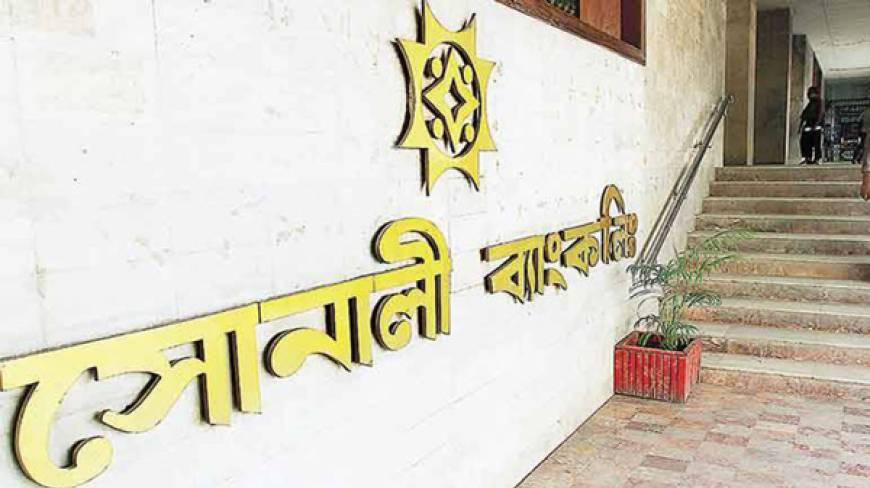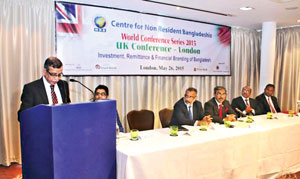Banking
World Bank improves outlook of Russia's battered economy
The World Bank on Monday said it saw some improvement in Russia's battered economy, predicting it would shrink by 2.7 percent this year and return to growth of 0.7 percent in 2016.
The Russian economy has been savaged by a fall in oil prices and Western sanctions imposed over the conflict in Ukraine, and the World Bank had previously forecast a contraction of 3.8 percent in 2015 and of 0.3 percent next year.
"The revised forecast is largely driven by the adjustment in oil prices over the previous two months that is supporting the ruble exchange rate and a slightly faster retreat of inflation," Birgit Hansl, World Bank lead economist for Russia, said in a statement.
"That would allow Russia's central bank to pursue monetary easing at a more rapid pace for the rest of 2015, as a result bringing down borrowing costs and increasing lending to firms and households."
After plummeting dramatically between June 2014 and January, oil prices have rebounded to around $60 a barrel.
Russia's ruble currency crashed last year but since the start of 2015 has clawed back ground, leading officials to claim that the worst of the crisis is over.
The Russian central bank in December hiked rates dramatically as the currency fell but in recent months has been cutting back rates as inflation fears have eased.
The International Monetary Fund has also improved its outlook for Russia to a 3.4 percent contraction this year and growth of 0.2 percent in 2016.
News:The Daily Star/2-Jun-2015
New StanChart boss faces cash call, dividend squeeze
Standard Chartered's incoming Chief Executive Bill Winters is expected to raise capital and cut the bank's dividend later this year, potentially forced to act by a tough stress test of its Asian loans, investors and analysts said.
Few believe the ex-JPMorgan rainmaker will miss the chance to bolster the balance sheet during his honeymoon at the Asian-focused lender, especially as Britain's Prudential Regulation Authority plans a fresh assessment on how shock-proof banks have become since the financial crisis.
The bank has already outlined ambitions to raise a key measure of its capital strength by the end of this year and Winters is expected to sound out investors on further capital raising plans after he takes the reins on June 10.
If he chooses not to raise capital, he could find his strategic choices crimped for at least two years and profits have already shown the strain of trying to "muddle through", analysts said.
"The approach we think that would protect medium term shareholder value best would be to take decisive action by raising capital up front, followed by balance sheet and business restructuring and a return to growth in the ongoing core bank," said Jason Napier, banking analyst at Deutsche Bank.
Napier estimated the bank needs to raise $5.25 billion.
"Given the choice, a highly regarded new chief executive would probably always plump for the budget to accelerate balance sheet growth and restructure the business as rapidly as the organisation can stand, and write down any existing assets that might be in doubt," he said.
This year's PRA "stress test" could hurt Standard Chartered as Asian exposures, a mainstay of its balance sheet, will be tested hard over a 5 year scenario.
The test will include a sharp slowdown in China's growth, deep recession in Hong Kong, a plunge in commodities prices and currencies and losses from trading book positions.
Several analysts and investors said the bank needed between $5 billion and $10 billion to get its common equity Tier 1 ratio (CET1) to the 12-13 percent shareholders expect.
Its ratio was 10.7 percent at the end of last year, and Standard Chartered said it has plans in place to lift this to at least 11 percent by the end of this year.
"$5 billion sounds sensible - the CET1 needs to head to 13 percent over time and with some provision top-ups and restructuring charges, you could easily make a case for $5 billion," said one shareholder, who asked not to be named.
"The PRA stress tests this year may also add impetus to raise as it will be more rigorous than last time on emerging markets," he said.
Jefferies analyst Joe Dickerson said the capital position was "a cause for concern" for investors and estimated the bank needs $8.8 billion in capital, while Investec analyst Ian Gordon estimated the capital need at $4.5-$7.5 billion.
Winters could provide a clear indication of strategy alongside half-year results in early August, but he may not set out his full plans until later in the autumn, one banking industry source suggested.
The bank had a $5.2 billion rights issue in 2010, but its capital advantage over most peers has been wiped out since.
Winters could deploy less dramatic options to avoid a lengthy and complex rights issue, including cost cuts and simplifying the bank's structure by exiting some countries.
The bank is cutting assets by $25-30 billion on a risk-adjusted basis, or one-tenth of its balance sheet.
Winters could supplement that by raising up to $3 billion from a quick-fire share sale to institutional investors, which would follow a $1 billion cash saving after investors opted to take its last dividend in shares. But that meant 69 million new shares were issued - effectively a mini rights issue.
Hugh Young, managing director of Aberdeen Asset Management Asia, the bank's second largest shareholder, said he was "ambivalent" about the need for a cash call, and said having lots of capital stashed away would keep the bank balance sheet strong but could drag down its returns.
News:The Daily Star/2-Jun-2015
HC stays Sonali Bank recruitment process

The High Court stayed for six months the recruitment process of state-owned Sonali Bank for engineer and IT personnel posts.
A bench comprising Justice Quazi Reza-Ul-Hoque and Justice Abu Taher Md Saifur Rahman passed the order yesterday following a writ petition.
The petition was filed by Golam Hakkani Alam, grandson of freedom fighter Yeasin Ali of Rajshahi.
The court also issued a ruling against the government to explain why the Sonali Bank recruitment circular should not be declared illegal.
Public Administration secretary, Bangladesh Bank governor and chairman, managing director and deputy general manager (HR) of Sonali Bank were asked to respond.
Mohammad Asaduzzaman stood for the petitioner while deputy attorney general Taposh Kumar Biswas represented the state.
On May 12, Sonali Bank published advertisements in different national dailies for recruitment of engineers and IT personnel in seven categories.
However, Sonali Bank did not mention anything about the grandchildren of freedom fighters in the freedom fighter quota.
Asaduzzaman said the Public Administration Ministry on January 16, 2011 issued a circular which it said if sons and daughters of freedom fighters cannot find jobs under the freedom fighters quota, their grandchildren can apply for the opportunity.
News:Dhaka Tribune/1-Jun-2015Trust Bank Ltd
 Ishtiaque Ahmed Chowdhury, Managing Director & CEO of Trust Bank Ltd speaking in a conference held in London recently. Centre for NRB organised the conference under World Conference Series 2015. M S Shekil Chowdhury of Centre for NRB chaired the session. Among others Bangladesh Bank General Manager Masud Biswas spoke on the occasion.
Ishtiaque Ahmed Chowdhury, Managing Director & CEO of Trust Bank Ltd speaking in a conference held in London recently. Centre for NRB organised the conference under World Conference Series 2015. M S Shekil Chowdhury of Centre for NRB chaired the session. Among others Bangladesh Bank General Manager Masud Biswas spoke on the occasion.
Prime Bank Limited
 Ahmed Kamal Khan Chowdhury, Managing Director & CEO of Prime Bank Limited and S.N Kairy, Chief Financial Officer of BRAC and BRAC International signed an agreement under which the bank will provide agricultural loan of BDT 2000 million to BRAC for onward lending to farmers for crop cultivation, poultry farming, fish farming etc.
Ahmed Kamal Khan Chowdhury, Managing Director & CEO of Prime Bank Limited and S.N Kairy, Chief Financial Officer of BRAC and BRAC International signed an agreement under which the bank will provide agricultural loan of BDT 2000 million to BRAC for onward lending to farmers for crop cultivation, poultry farming, fish farming etc.



